How USAID is Reducing Physical and Social Barriers for Persons with Disabilities in Vietnam
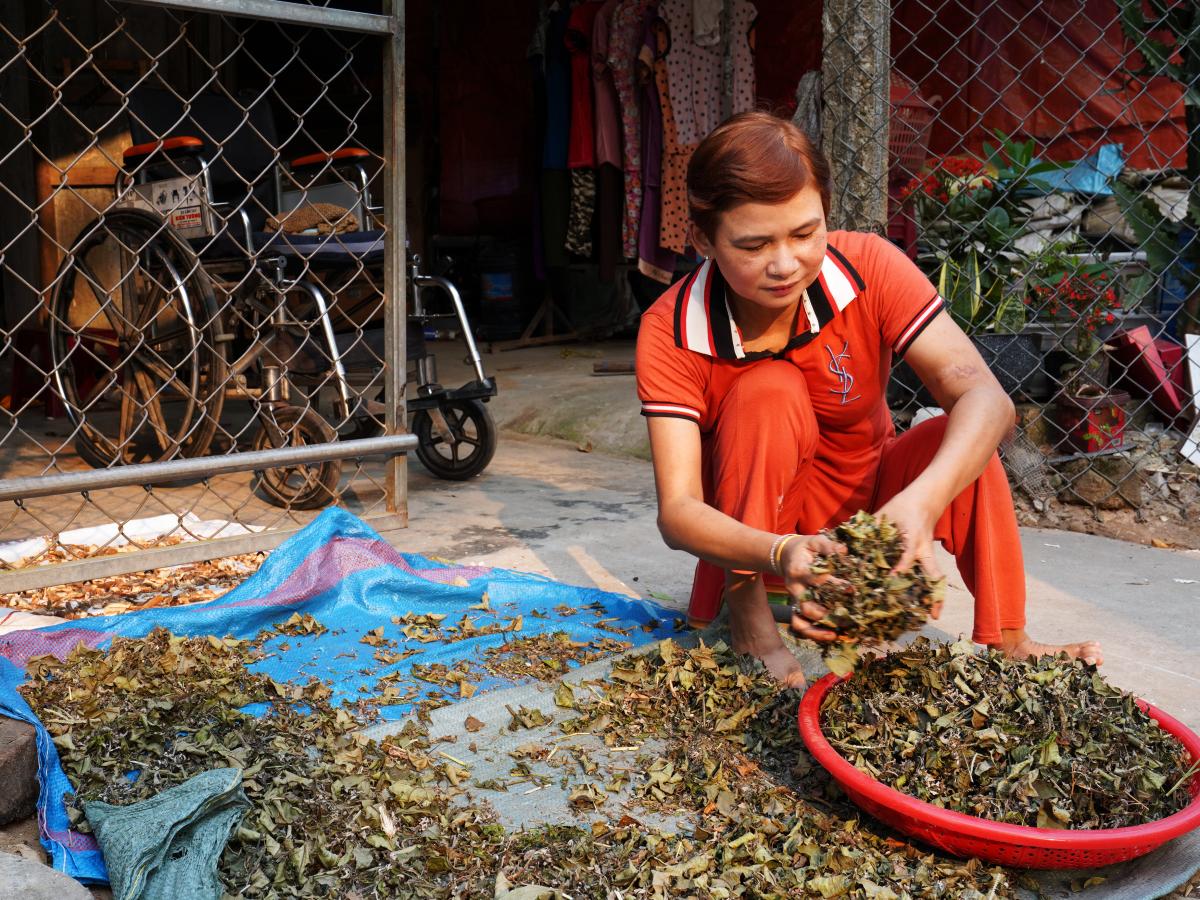
“In the past I was afraid.” Ms. Loa says unequivocally about her life. “Before I felt inferior and I did not want to make friends, fearing they would look down on me.” Ms. Loa lives in a predominantly rural district of southern Vietnam, a district crisscrossed with rivers, where agriculture and aquaculture are the main source of income. It is hard to imagine the hardships Ms. Loa has faced in comparison with who she is now, a dynamic, powerful woman whose smile lights up any room she is in. Her story is unfortunately not uncommon in Vietnam where many persons with disabilities are considered a burden and whose care is left to family members who have little or no formal caregiving skills.
Ms. Loa spent the first 49 years of her life having to crawl on the ground because her legs never fully developed. Through a combination of a lack of access to support and a negative self-worth she did not receive assistance until recently. During those years she was ostracized from her community, suffered injuries due to her mobility issues, and was subjected to violence. Yet remarkably, as a single mother, she still managed to raise a daughter on the resources earned from recycling metals and plastics.
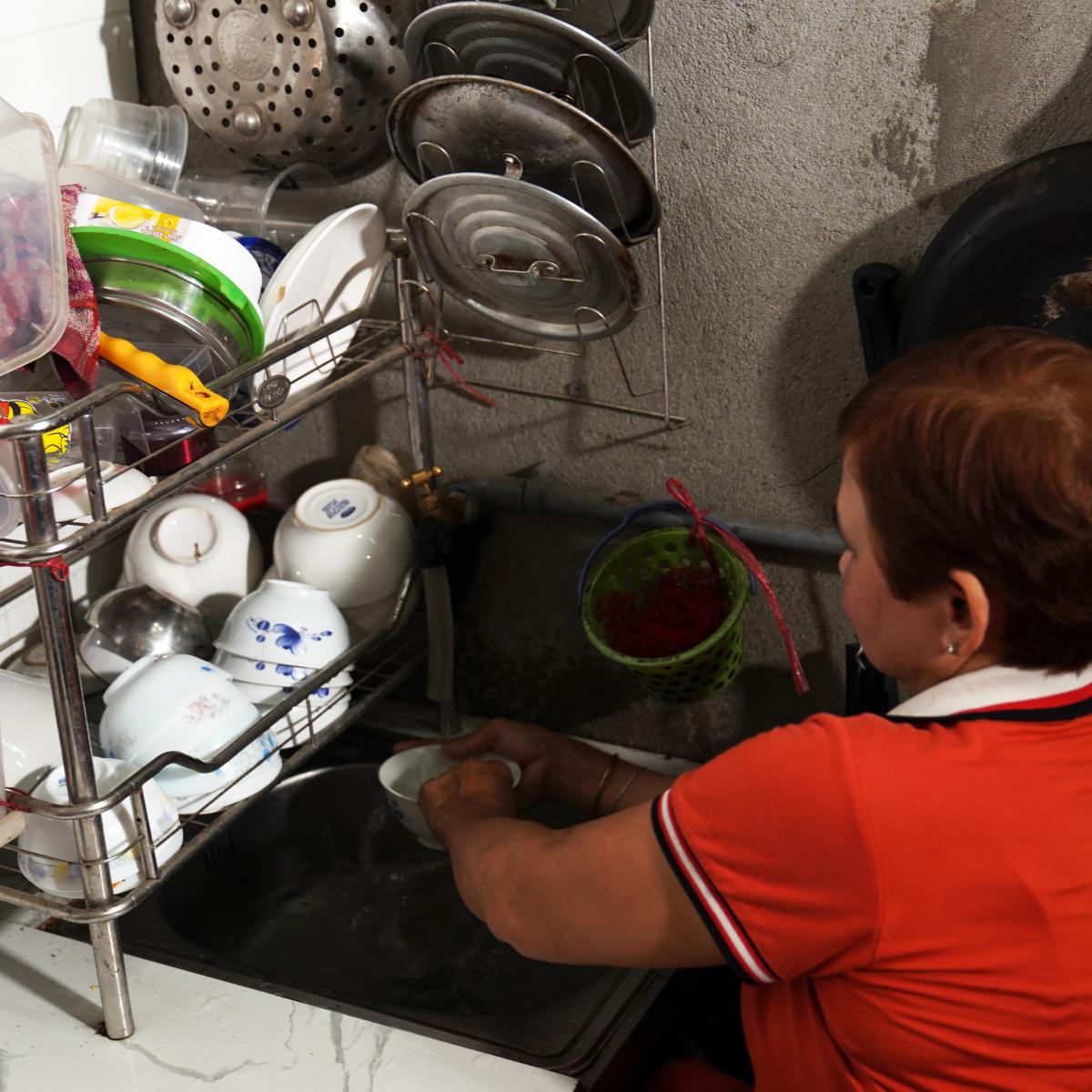
Two years ago, she began her transformation when she was connected to USAID’s Raising Voices, Creating Opportunities project, implemented by the local organization Action to the Community Development Institute, which provides direct support to persons with disabilities and caregivers in independent living skills, reproductive health, legal counseling, and gender-based violence workshops. Initially, Ms. Loa spent time in a transition house where she learned how to use accessibility features so that her own home could be modified, allowing her to live a more independent, healthy, and dignified life. Following this, she participated in workshops where she learned to care for herself and improve her self-worth. One of the most apparent changes came when she was provided with a wheelchair, which she was initially hesitant to use, but over time she took to the wheelchair like a pro. It has revolutionized her life. She used to leave the house only to collect recycling left nearby, but now she’s active in her community, she goes to the market, buys healthy food, and cooks in her accessible kitchen.
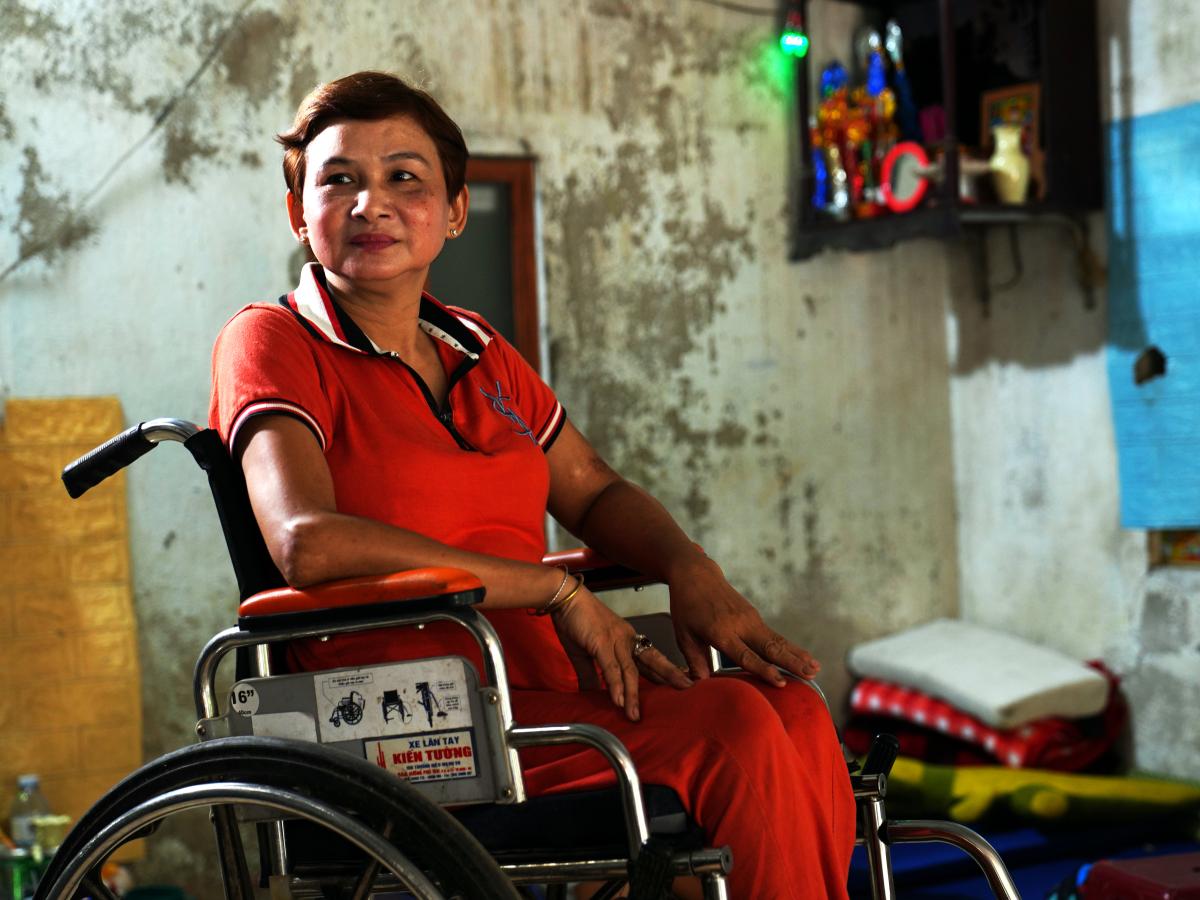
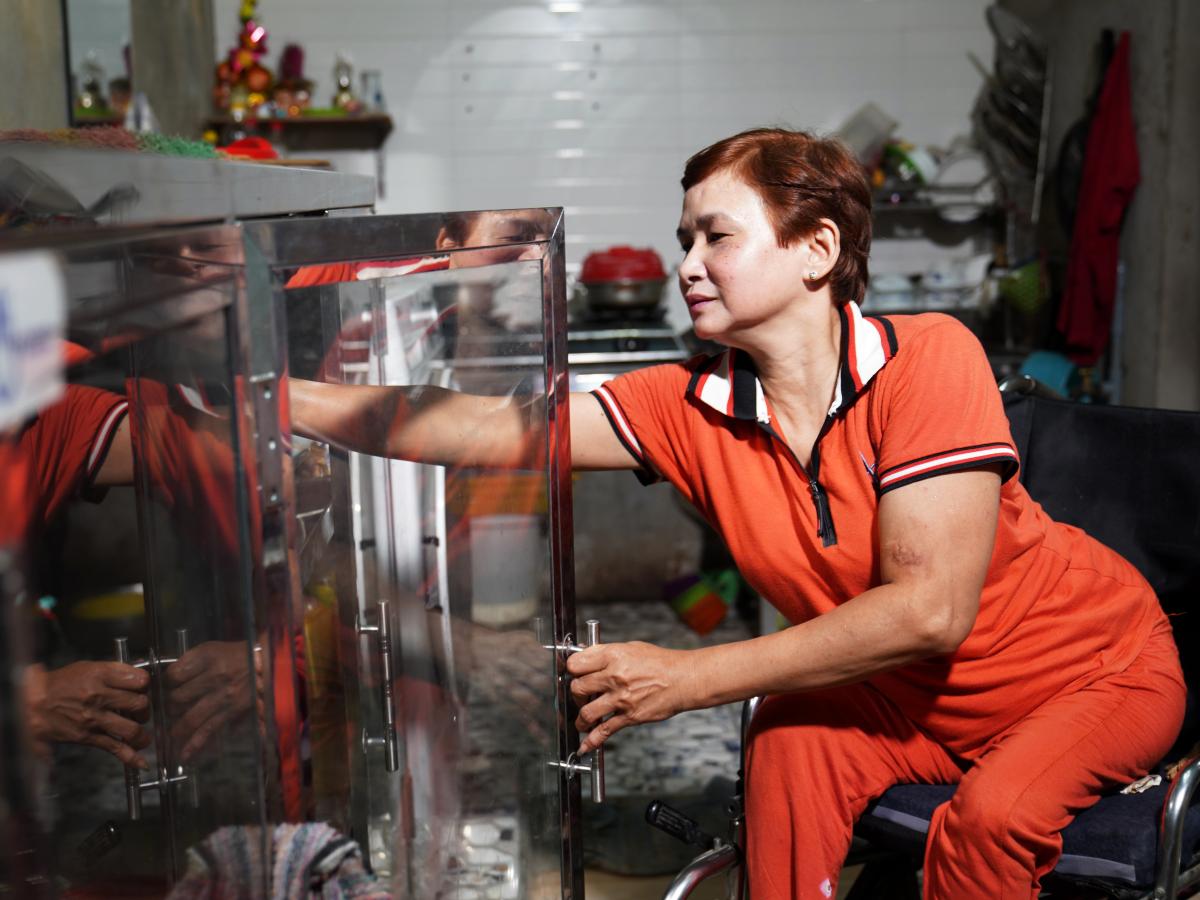

“In the past I couldn’t go anywhere. I just stayed at home. Now, I can go wherever I like in the wheelchair.”
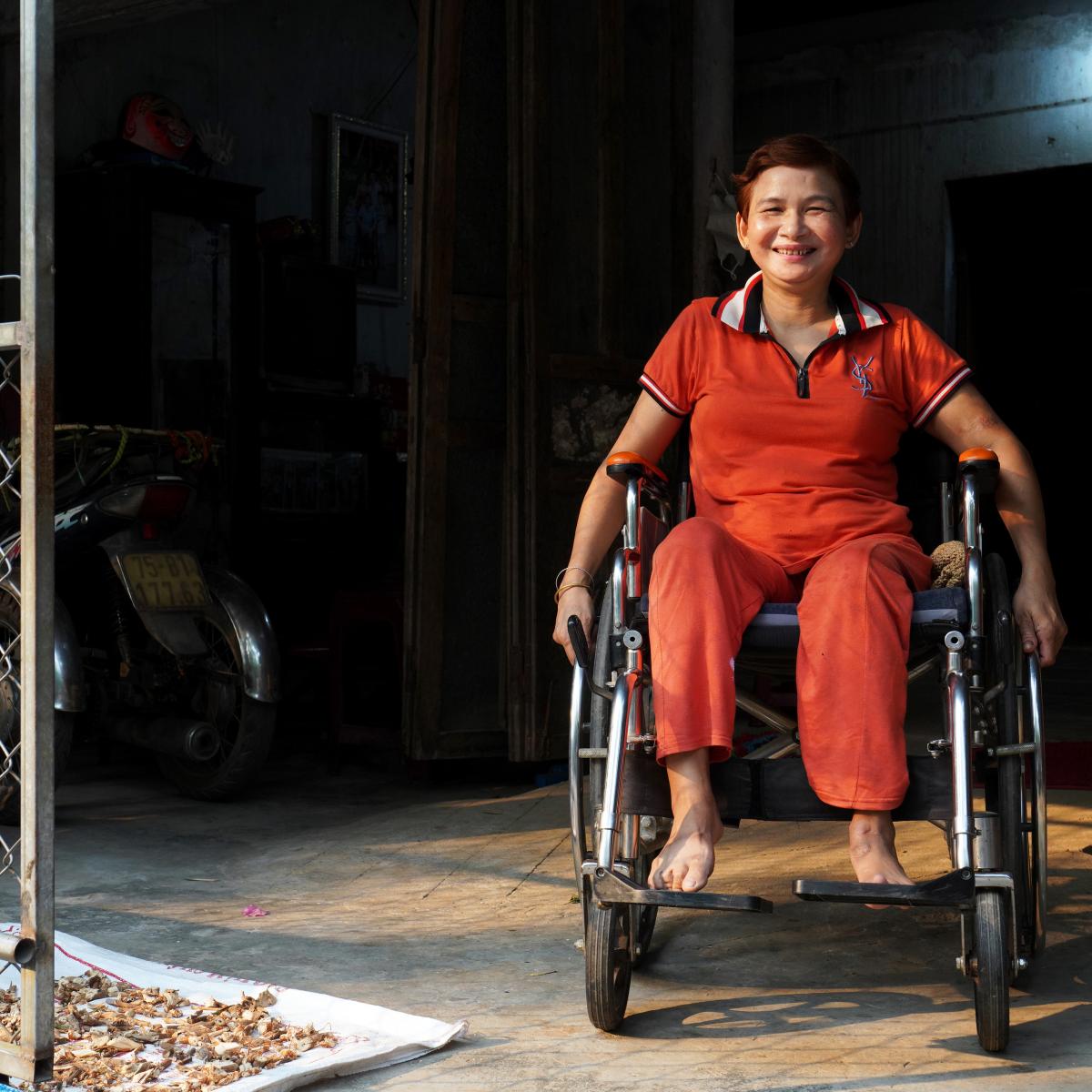
Over the last 30 years, the U.S. Government has contributed more than $155 million in assistance to persons with disabilities in Vietnam, improving the quality of life of one million persons. In 2022 alone, USAID provided direct support to over 46,000 persons with disabilities, improving rehabilitation and social services, strengthening policies supporting disability rights - all reducing the physical and social barriers this population faces.
Ms. Loa’s transformation over the past two years is manifested in her new outlook on life. She is engaged in her community as a member of her local women with disabilities association where she provides support to other women. Her two grandchildren regularly come to her house now that she can care for them and she is planning to open a small home based business. Ms Loa faced numerous challenges and overcame them, improving her own life and becoming an inspiration to anyone who meets her. “The suffering I faced is in the past, I only feel happiness now.” she says, flashing her confident smile.



